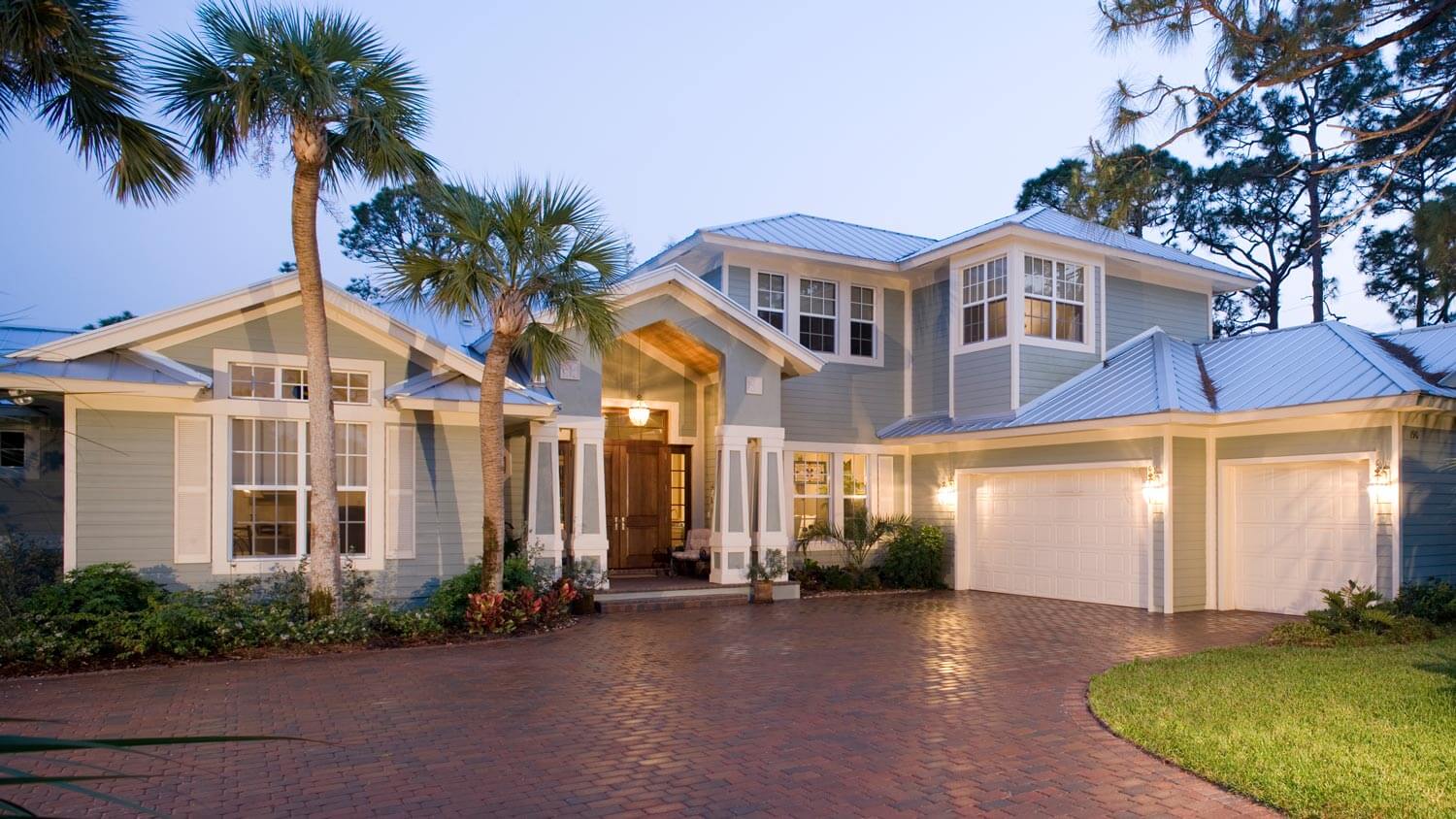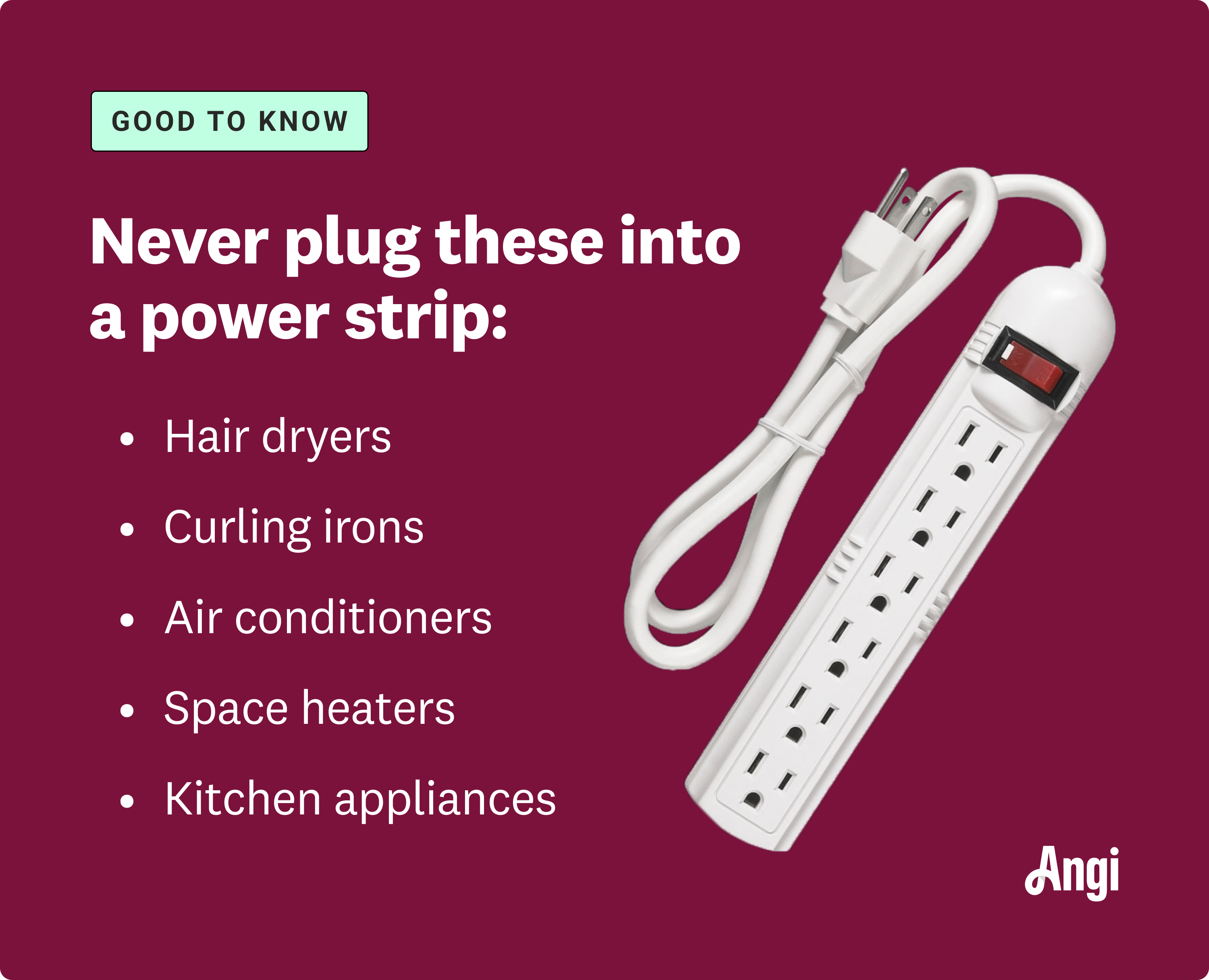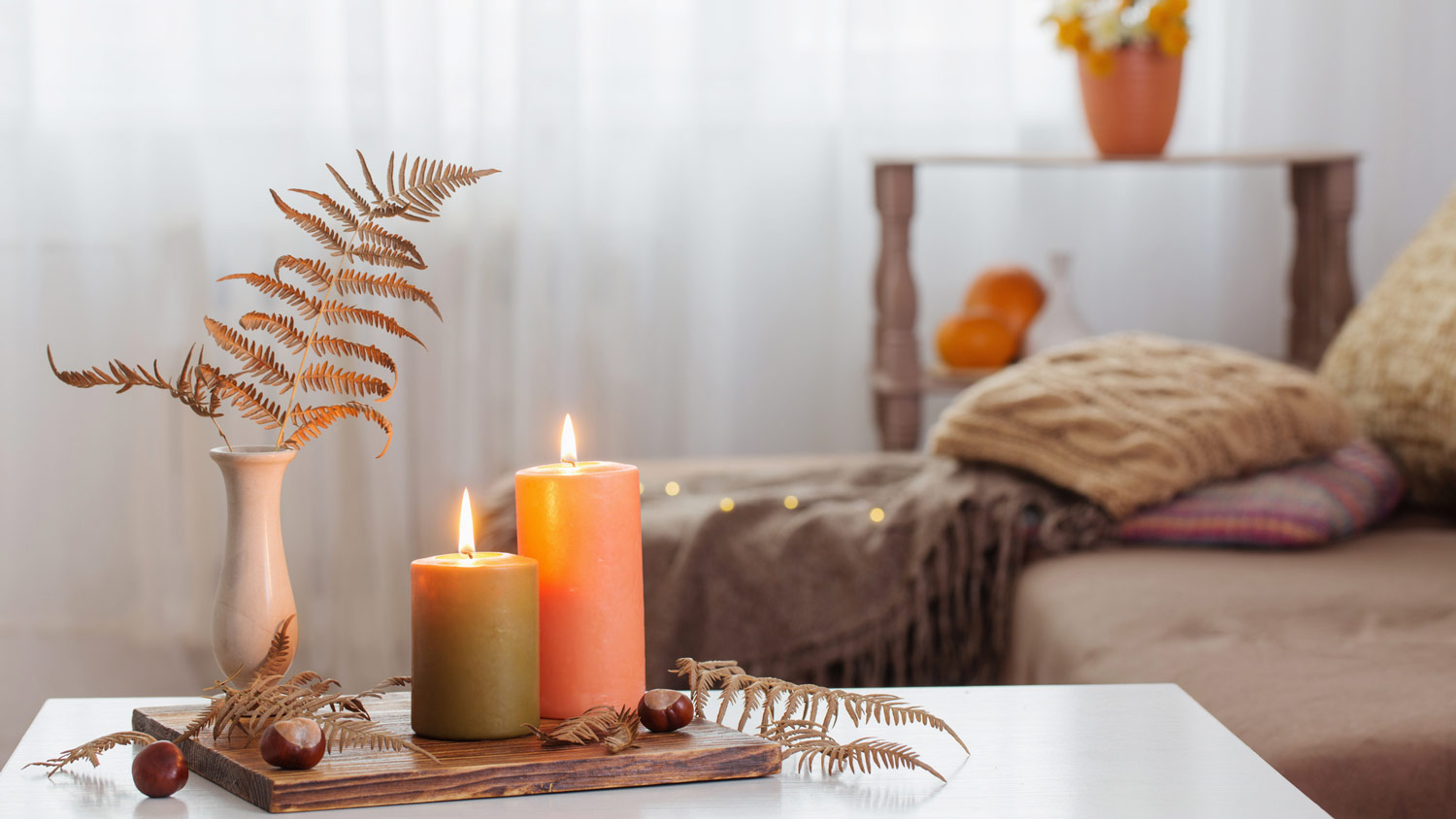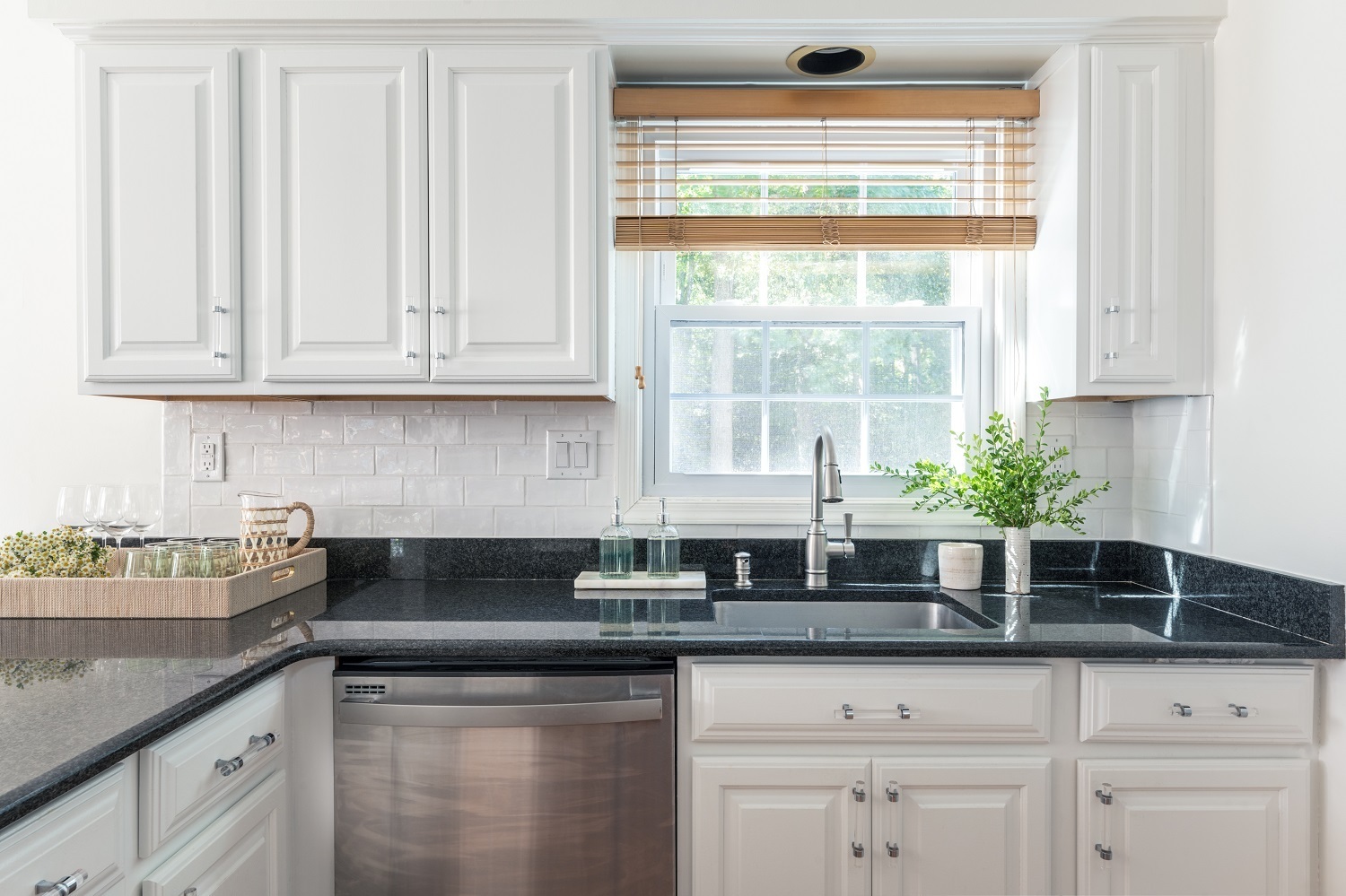14 Effective Safety Tips to Protect Your Home
Make sure your home stays a safe haven with these tips


We’ve all heard the phrase “from the safety of your own home”—but that safety isn’t always a given. The truth is, accidents can happen anywhere, so it’s always important to be proactive. Here are 14 home safety tips to keep your family safe and sound.
1. Keep Doors Locked at All Times
Even if you’re on a first-name basis with your neighbors and you rarely hear a police siren, no neighborhood is 100% safe. Don’t give criminals an easy way in. Whether you’re home or not, keep your doors closed and locked at all times. If you’re stepping out, be sure to shut and lock your windows too.
2. Consider a Home Security System
A home security system is an extremely wise investment for any home. These provide next-level peace of mind by preventing intruders from entering your house. If your home security system is outdated, update to the latest technology to ensure you have the best possible protection. Contact a trusted local security system provider to get the ball rolling.
3. Rekey the Locks After Moving In
A key safety tip is to change the locks after moving into a home or apartment that was previously occupied. If you’re concerned about your safety when renting an apartment, check with your landlord prior to changing the locks. They may already have done it, plus they’ll need an updated key either way.
4. Keep the Lights On When Nobody’s Home

A dark home is like fresh meat for intruders, especially when there are no cars in the driveway. Luckily, it’s really simple to prevent your home from becoming an easy target while you’re away. Put your front room lights on a timer so they’ll automatically flip on in the evenings. Better yet, install a wireless security system that allows you to turn lights on and off with your phone.
5. Don’t Announce When You’re Out of Town
It’s tempting to Instagram the sandy shores of your beach vacation, but this may tip off the wrong person. It announces that your home is empty and potentially free for an easy break-in. Save the social media posts for after you’ve returned, and limit who you tell about your plans.
6. Practice Electrical Safety by Not Overloading Power Strips
One of the most important home electrical safety tips is to avoid overloading your power strips. This can cause an electrical fire, so it’s essential to be mindful of how much amperage your outlet can actually handle. On average, most outlets can take around 15 to 20 amps. Compare that number to the output for each object you plug in.

There are also a few objects that should never go in a power strip in the first place. These include:
Hairdryers
Curling irons
Air conditioners
Space heaters
Refrigerators
Microwaves
Toasters
Air fryers
Slow cookers
Pressure cookers
7. Keep Electrical Objects Away From Water and Moisture
Water is a major conductor of electricity—and you should never take this for granted in your home. Hair products like blow dryers and straighteners should stay away from running faucets, full bathtubs, and open toilets. Electrical cords from kitchen appliances should never be near wet countertops or soapy loads of dishes. Also, be sure your hands are dry before plugging anything in.
8. Install Safety Caps or TRRs for Childproof Electrical Safety
Curious kiddos tend to stick their fingers into whatever they find, so don’t forget to cap your electrical outlets to babyproof your house. Contact a local electrician about adding tamper resistant receptacles, or TRRs, to your outlets for a more permanent solution. These are spring-loaded outlet covers that prevent unwanted objects from getting inserted. The outlet only responds to simultaneous pressure on both sides, like from an actual plug.
9. Keep Flammable Objects Away From Electricity and Heat Sources

In addition to keeping a working fire extinguisher, fireproofing your home is all about being mindful of potential hazards. Keep flammable objects like clothing, curtains, paper, and wood away from anything that could ignite them. This includes candles, space heaters, radiators, power strips, and more. Also, if you prefer real Christmas trees, check your lights for damaged wiring and consider replacing them with safer LEDs.
10. Lock Up Medication
Many prescribed and over-the-counter medications carry a serious risk of overdose or major health complications when taken in unsafe dosages. Lock everything up in a separate cabinet to stay on the safe side. This is especially important for homes with children and teenagers, as emotion or curiosity can quickly lead to a dangerous situation.
11. Avoid Preventable Home Deaths With a Carbon Monoxide Detector
Carbon monoxide is known as a silent killer for a reason. According to the Centers for Disease Control and Prevention (CDC), over 400 Americans die per year from accidental carbon monoxide poisoning not linked to fire. You won’t be able to see or smell a leak, so it’s crucial to install a carbon monoxide alarm in addition to your smoke alarm. Most places even require it by law, though laws vary by state.
12. Keep Sharp Objects Out of Reach
Keep your kitchen knives and prized sword collection far out of reach, especially when you have kids around. If these objects get mistaken for toys, it could lead to serious injury.
Note: Never leave sharp items submerged in a sink full of soapy water.
13. Store Firearms in a Safe or Safety Deposit Box
If you have any firearms in your home, these should stay locked in a fireproof safe when they’re not in use. This is especially crucial when you have children or young guests around.
14. Talk to Your Family About Home Safety
Now that you’ve read up on these important home safety tips, share them with your household so everyone is on the same page. Here are a few other points to address:
Leave emergency numbers in a visible location.
Never open the door to strangers.
Monitor your children’s internet activity.
Keep an eye out for suspicious activity around your home.
Develop plans for fire, break-ins, and other emergencies.





- Bathroom Remodeling
- Kitchen Remodeling
- Shower Installation
- Stair Installers
- Bathtub Installation
- Shower Door Installers
- Kitchen Design
- Bathroom Design Companies
- Storm Shelter Builders
- Pre-Made Cabinets
- Kitchen Refacing
- Bathtub Replacement
- Ceiling Tile Installation
- Suspended Ceiling Companies
- Residential Designers
- Stair Builders
- Remodel Designers
- Shower Enclosures
- Home Renovations
- Kitchen Renovations
- Garage Remodeling
- Grab Bar Installation
- Walk-In Tub Installers
- Tub to Shower Conversion
- Balcony Contractors















